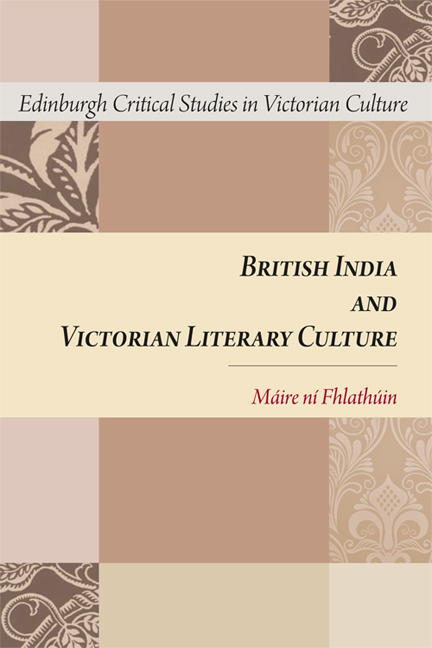Book contents
- Frontmatter
- Contents
- Series Editor's Preface
- Acknowledgements
- A Note on Terms
- Introduction
- Part I Experiences of India
- Part II Representations of India
- 4 European Nationalism and British India
- 5 Romantic Heroes and Colonial Bandits
- 6 Imagining India through Annals and Antiquities of Rajast'han
- 7 Transformations of India after the Indian Mutiny
- Afterword: Reading India
- Bibliography
- Index
6 - Imagining India through Annals and Antiquities of Rajast'han
from Part II - Representations of India
Published online by Cambridge University Press: 05 August 2016
- Frontmatter
- Contents
- Series Editor's Preface
- Acknowledgements
- A Note on Terms
- Introduction
- Part I Experiences of India
- Part II Representations of India
- 4 European Nationalism and British India
- 5 Romantic Heroes and Colonial Bandits
- 6 Imagining India through Annals and Antiquities of Rajast'han
- 7 Transformations of India after the Indian Mutiny
- Afterword: Reading India
- Bibliography
- Index
Summary
In looking to narratives drawn from Indian history and legend, British writers found a space – historically distant and /or geographically outside the zone of British direct control – where Indian self- determination could be imagined with less concern for its impact on the contemporary colonial project. One of the most important such resources for writers of the Victorian period was James Tod's Annals and Antiquities of Rajast'han (1829, 1832). Rajasthan (as I shall refer to it from now on) is one among several important nineteenth- century works on the history of the Indian subcontinent, but is unusually influential both in its own right and as a source text for later writers, both British and Indian. This is partly owing to its subject matter: where Hinduism generally identified ritual purity as its core value and organising principle, Rajputs valued honour; their social organisation and defining narratives were therefore closer to those of contemporary Britain, already familiar with Romantic- influenced ideas of a Western chivalric history.The narrative richness of Rajasthan and its colourful vision of India's past also contributed to its impact on British readers and writers.
Tod, an army officer, was first posted to Rajputana in 1805, and set about amassing manuscripts and other sources for the geography, history and folklore of the area. At the outbreak of the third Anglo- Maratha war in 1817, his knowledge and experience proved to be ‘of inappreciable value’ in the British campaigns. Following British victory over the Maratha confederacy, the princely states of Rajputana signed treaties which bound them to a role of ‘subordinate co- operation with the British Government’, the payment of revenue, and subjection to British control over their foreign relations. Tod was appointed Agent to the Governor- General in the area then known as the ‘Western Rajpoot’ states, and remained in post until 1822. During this period, he continued research for Rajasthan, a work that had a defining influence on British perceptions, and representations, of the character and history of the people of these regions, and by extension of India more generally.
- Type
- Chapter
- Information
- British India and Victorian Literary Culture , pp. 127 - 153Publisher: Edinburgh University PressPrint publication year: 2015



